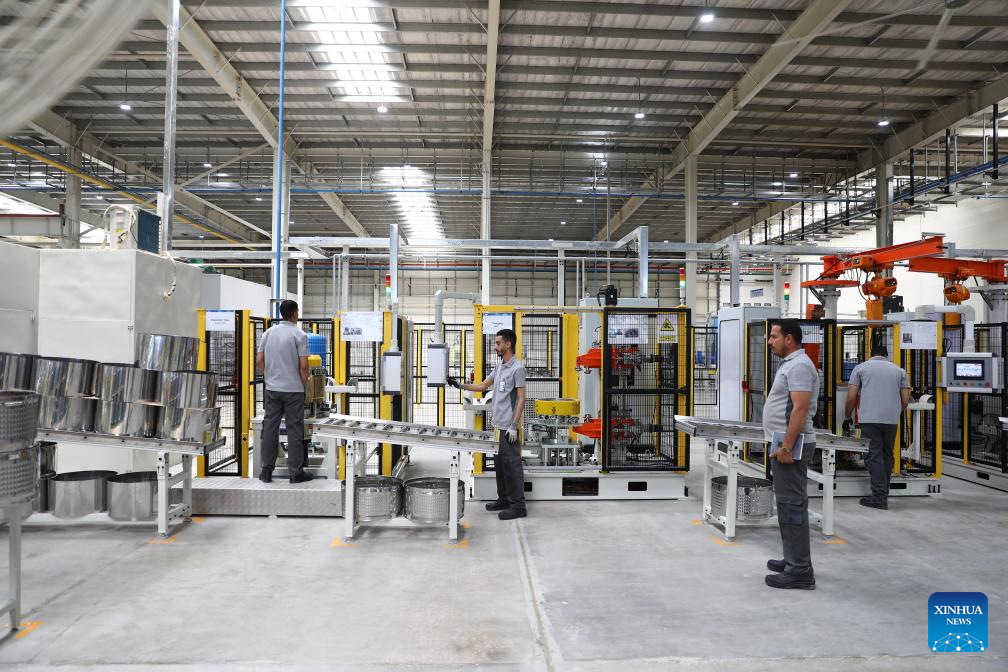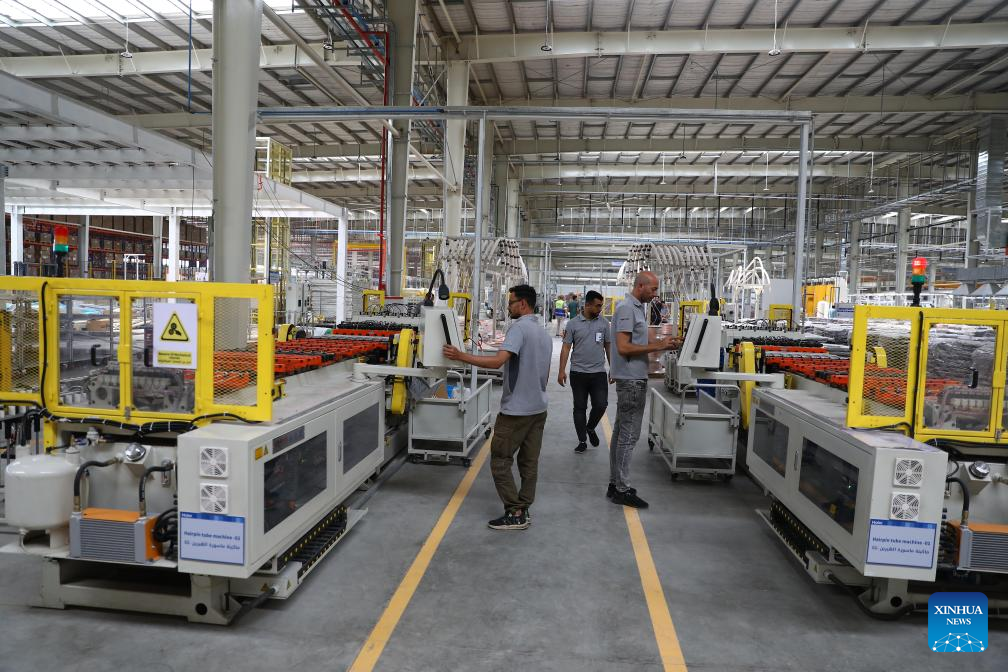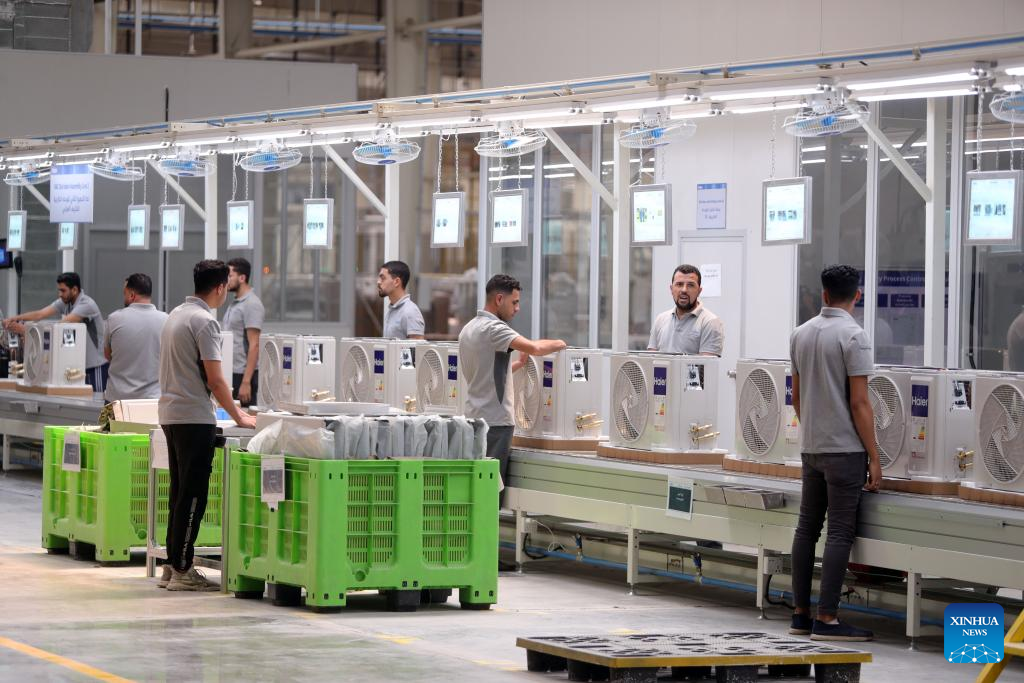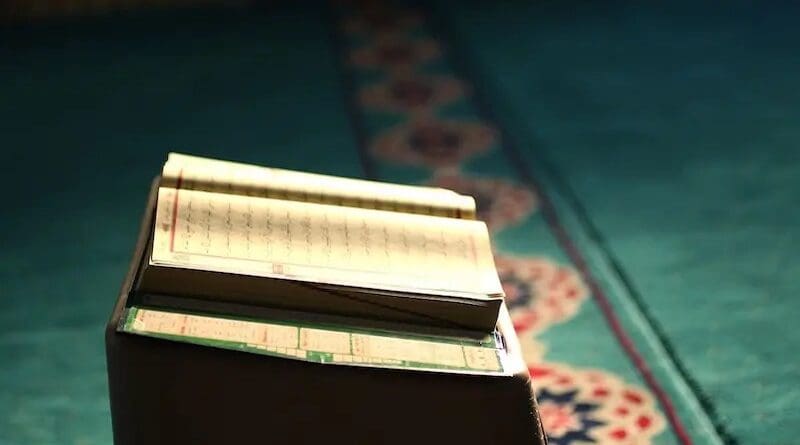
Is Qur’an View Of Jews Killing God’s Prophets False? – OpEd
In the following eight verses the Qur’an asserts that the Jews killed their Prophets. Is this correct? No and yes. No, because the Jewish people themselves wrote down and preserved the words of their many prophets. The rabbis identified 55 prophets by name 48 males and 7 females.
For more than one thousand years following the covenant made with God at Mount Sinai, the Jewish People were blessed with dozens of God inspired prophets. But yes because on more than one occasion Jewish rulers ordered their agents to get rid of their Prophet critics.
The Qur’an states: When it is said to them, “Believe in what Allah has revealed,” they say, “We believe [only] in what was revealed to us.” And they disbelieve in what came after it (the New Testament and the Qur’an) while it is the truth confirming that which is with them. Say, “Then why did you kill the prophets of Allah before, if you are [indeed] believers?” (2:91)
“Those who disbelieve in the signs of Allah, and kill the prophets without right, and kill those who order justice from among the people; giving them tidings of a painful punishment. (3:21)
“They have been put under humiliation [by Allah] wherever they are overtaken, except for a covenant from Allah and a rope from the Muslims. And they have drawn upon themselves anger from Allah and have been put under destitution. That is because they disbelieved in the verses of Allah and killed the prophets without right. That is because they disobeyed and [habitually] transgressed. (3:112)
“Allah has certainly heard the statement of those [Jews] who said, “Indeed, Allah is poor, while we are rich.” We will record what they said; and their killing of the prophets without right, and will say, “Taste the punishment of the Burning Fire. (3:181)
“And for their breaking of the covenant, and their disbelief in the signs of Allah, and their killing of the prophets without right, and their saying, “Our hearts are wrapped (and sealed)”. Rather, Allah has sealed them because of their disbelief, so they believe not, except for a few. (4:159)
In the above passages it even sounds like all Jews killed all prophets which were sent to them — note the definite article: “the prophets”. On the other hand, there are two passages which formulate more cautiously that the Jews killed (only) some of them:
And We did certainly give Moses the Torah; and followed up after him with (with 55 male and female prophets as) messengers. And We gave Jesus, the son of Mary, clear proofs and supported him with the holy spirit. But is it [not] that every time a messenger came to you, with what your souls did not desire, you were arrogant? And a party [of prophets) you denied and another party you killed. (2:87)
We had already taken the covenant of the Children of Israel and had sent to them messengers. Whenever there came to them a messenger with what their souls did not desire, a party [of messengers] they denied, and another party they killed. (5:70)
[They are] those who said, “Indeed, Allah has taken our promise not to believe any messenger until he brings us an offering which fire [from heaven] will consume.” Say, “There have already come to you messengers before me with clear proofs and [even] that of which you speak. So why did you kill them, if you should be truthful?” (3:183)
The most outrageous case was that of Prophet Zechariah, son of the high priest Jehoiada, who was stoned to death in Prophet Solomon’s HolyTemple (2 Chronicles 24:21). According to the Talmud, his blood bubbled (because the rulers did not repent) for two centuries, until the destruction of the Temple (paid its price).
Thus, “a priest and prophet were killed in the Temple” (Lamentations 2:20) is a reference to this incident, presenting a reason for the destruction of Jerusalem and its Holy Temple built by Prophet King Solomon.
Professor Rabbi Marty Lockshin points out in an article in the Times of Israel (8/1/22) that the book of Jeremiah, written soon after the destruction of the First Temple, asks the big question: What caused the destruction? Jeremiah 9:11 states: “What man is so wise that he understands this? To whom has God’s mouth spoken, so that he can explain it: Why is the land in ruins, laid waste like a wilderness, with none passing through?”
God’s answer (Jeremiah 9: 12-13) follows: “God replied: “Because they forsook the Torah I had set before them. They did not obey Me and they did not follow it, but followed their own willful heart and followed the Baʿalim (pagan idols), as their fathers had taught them.”
God accuses the Judahit (rulers) of ignoring his laws and worshipping the Baʿalim, pagan gods. Centuries later, rabbinic texts adopted Jeremiah’s answer, but added two more sins (Talmud Yoma 9b): “Why was the first Temple destroyed? For the three [cardinal] sins: idolatry, illicit sexuality, and murder.
In contrast, the poetic laments in the book of Lamentations list no specific sins the Judahites committed: Lamentations 1:5 …God has afflicted her (Jerusalem) for her many transgressions…Lamentations 1:18 “Jerusalem has sinned… Lamentations 4:6 “The guilt of my poor people exceeded the iniquity of Sodom”
The author is certain that the destruction was warranted, and sees it as God’s will, but doesn’t suggest specifics; but one phrase in Lamentations has been interpreted as describing one specific appalling sin: Lamentations 2:20 “See, O Lord, and behold, to whom You have done this! If women eat their own fruit, their new-born babies! If a priest and prophet were slain in the Sanctuary of the Lord!” (they deserve it)
The classical rabbinic sources are clear in understanding the verse as a reference to an Israelite sin called: The Bubbling Blood of the Prophet Zechariah: The Talmud in a passage often studied on Tisha be’Av, the rabbis describe the destruction of the First Temple by the Babylonians (Talmud Gittin 57b): Rabbi Yehoshua ben Korḥah said: An old man from among the inhabitants of Jerusalem related to me: “In this valley Nebuzaradan, captain of the guard [of the Babylonian king Nebuchadnezzar], killed 2,110,000 Jews, until their flowing blood came in contact with the blood of Zechariah, to fulfill what Hosea said (Hosea 4:2): “And blood came into contact with blood.”
[Nebuzaradan] saw that the blood of Zechariah was bubbling up. He said: “What is this?” They said to him: “It is the blood spilled from sacrifices.” He brought [animal] blood and it did not look the same. He said to them: “If you tell me the truth, it will be well with you. If not, I will rake your flesh with iron rakes.” They said to him: “What shall we say to you? He was a prophet among us, who used to rebuke us about religious matters, and we rose up against him, and killed him, and for many years now his blood has not settled.”
The murdered prophet Zechariah mentioned in the Talmud appears in a story in Chronicles. During the reign of King Joash, after the death of the righteous high priest, Jehoiada, the people began to sin, prompting God to send a prophetic warning through Jehoiada’s son, Zechariah: Chronicles 24:20 Then the spirit of God enveloped Zechariah son of Jehoiada the priest; he stood above the people and said to them, “Thus God said: Why do you transgress the commandments of the Lord when you cannot succeed? Since you have forsaken the Lord, He has forsaken you.” 24:21 They (the king’s agents) conspired against him and pelted him with stones in the court of the House of the Lord, by order of the king.”
Reading the words in Lamentations 2:20 as referring to the story of Zechariah, the Talmud understands the word “and,” that separates the nouns priest and prophet as not two individuals, but a single person who was both a priest and a prophet.
As he dies, Zechariah prophesies that God will take vengeance: Chronicles 24:22 “King Joash had no regard for the loyalty that his father Jehoiada had shown to him, and killed his son. As he was dying, he said, “May the Lord see and requite it.”
Given the two centuries-long gap between the murder of Zechariah, in the time of King Joash, and the destruction of the Temple in 586 B.C.E., the Talmud is envisioning the blood of this murdered priest-prophet as having bubbled for over 200 years.
In the New Testament, Matthew (23:31–35) quotes Jesus as chastising the scribes and the Pharisees, telling them that “You testify against yourselves that you are the descendants of those who murdered the prophets,” promising that “upon you may come [punishment for] all the righteous blood shed on earth, from the blood of righteous Abel to the blood of Zechariah son of Barachiah, whom you murdered between the sanctuary and the altar.” (2Chronicles 24:20-22)
The theme of the Jews as murderers of their prophets appears three more times in the New Testament. (See Luke 11:47-51, Luke 13:34, and Revelation 16:6)
The Talmud’s understanding of the verse requires reading it as a dialogue. After the lamenter says “How could you (God) have done this to us? How could you have reduced us to eating our own children?” God answers, “How could you have committed the terrible crime of the murder of Zechariah?” That is how Rashi (1040–1105), who follows the Talmudic interpretation, explains the verse: “The Holy Spirit [i.e. God] responded to them, “And was it proper for you to kill Zechariah the son of Jehoiada?” …he was a priest and a prophet, and they killed him in the Temple.” (see 2 Chronicles 24:20-22)
The Jezebel/Elijah narrative in the Book of Kings refers to the killing of prophets. 1 Kings 18:4 relates, “when Jezebel (who was not Jewish) was butchering the prophets of Yahweh….” Later Elijah refers to the killing of prophets during his conversation with God on Mt. Horeb (Mt. Sinai) where he fled from the wrath of Jezebel’s husband, the Israelite king Ahab. When the Lord asks him what he is doing there Elijah responds: “I am full of jealous zeal for Yahweh Sabaoth, because the Israelites have abandoned your covenant, torn down your altars and put your prophets to the sword. I am the only one left, and now they want to kill me” (1Kings 19:9-10).
I say Shia Islam and Judaism share a yearly day of mourning and fasting for a very tragic and sad, historical religious event that happened centuries ago. For the Shia it was the slaughter and the tragic martyrdom of Prophet Muhammad’s grandson Husayn, and most members of his family, who were massacred by their enemies on the 10th day of the Islamic month of Muharram, in a battle in 680 CE. For Jews it was the destruction of the holy Jerusalem Temple; first in 587 BCE by the Babylonians, and then again by the Romans in 70 CE. Both Temples were destroyed on the 9th day of the Jewish month of Av. This year the 9th of Av and the 10th of Muharram coincide on Sunday August 7, 2022.
Actually, the 9th of Av is on Saturday, but because the joyful celebration of Shabbat overrides the mourning for the Temple, the observance of 9th of Av is shifted to the 10 of Av and thus coincides with the 10th of Muharram. So Jews and Muslims can use this coincidence to think we should learn to share our sorrows with each other.
The Shia do not charge all, or even most, Sunnis with killing Prophet Muhammad’s grandson Husayn, who they believe should have become the true ruler of the Muslim Community. In the same way Muslim teachers and leaders should not interpret the above verses as applying to all, or even most Jews.
Many leaders of the various tribes in Makkah joined in on the plot to kill Prophet Muhammad yet nobody blames their descendants for plotting to kill Prophet Muhammad. Justice demands that we punish only the rulers who order these terrible deeds.
Everyone knows how important fasting during Ramadan, and daily worship and prayer are in Islam; but few know that Islam considers reconciling people better than many acts of worship.
Prophet Muhammad said: “Should I not tell you what is better in degree than prayer, fasting, and charity.” They (the companions) said: “Yes.” He said: “Reconciling people, because grudges and disputes are a razor (that shaves off faith).” (Ahmad, Abu Dawood, and At-Tirmithi)
Even more amazing, Prophet Muhammad said: “The one who reconciles people is not considered a liar if he exaggerates what is good or says what is good.” [Ahmad]
This is an excellent guide to dealing with the three-generation old Israeli-Palestinian conflict. Rather than focusing mostly on the pain and sorrow that the other side did to us, we should focus on how the conflict has hurt all of us, and how much better our future would be if we could live next to each other in peace.
If the descendants of Prophet Isaac and Prophet Ishmael negotiate a settlement that reflects the religious policy that “…there is no sin upon them if they make terms of settlement between them – and settlement [reconciliation] is best.” (Quran 4: 128)
The Qur’an refers to Prophet Abraham as a community or a nation: “Abraham was a nation/community [Ummah]; dutiful to God, a monotheist [hanif], not one of the polytheists.” (16:120) If Prophet Abraham is an Ummah then fighting between the descendants of Prophets Ishmael and Isaac is a civil war and should always be avoided.
If all Arabs and Jews can live up to the ideal that ‘the descendants of Abraham’s sons should never make war against each other’ is the will of God; we will help fulfill the 2700 year old vision of Prophet Isaiah: “In that day there will be a highway from Egypt to Assyria. The Assyrians will go to Egypt, and the Egyptians to Assyria. The Egyptians and Assyrians will worship together. On that day Israel will join a three-party alliance with Egypt and Assyria, a blessing upon the heart. The LORD of Hosts will bless them saying, “Blessed be Egypt My people, Assyria My handiwork, and Israel My inheritance.”…(Isaiah 19:23-5)
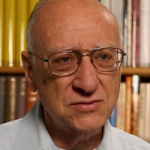
Rabbi Allen S. Maller
Allen Maller retired in 2006 after 39 years as Rabbi of Temple Akiba in Culver City, Calif. He is the author of an introduction to Jewish mysticism. God. Sex and Kabbalah and editor of the Tikun series of High Holy Day prayerbooks.


